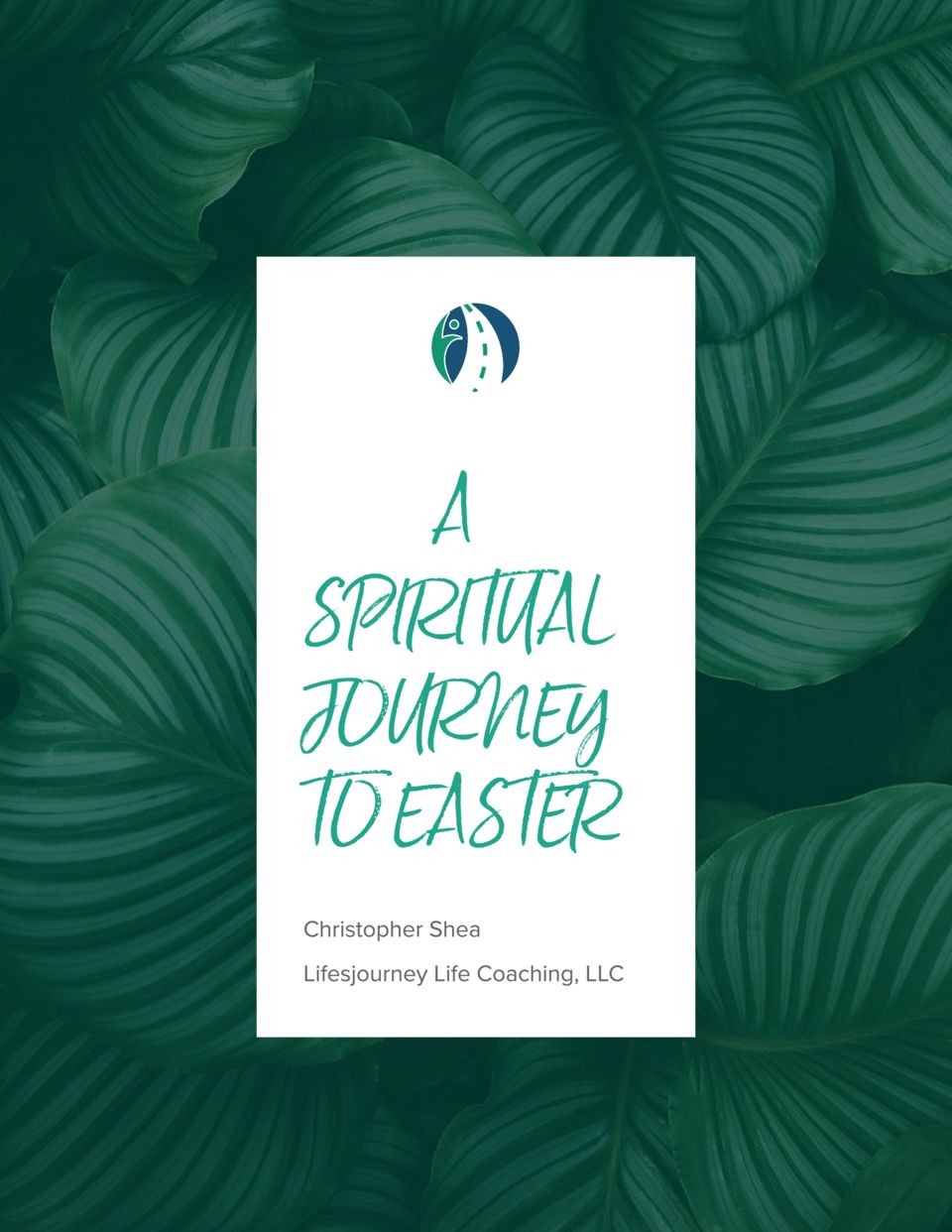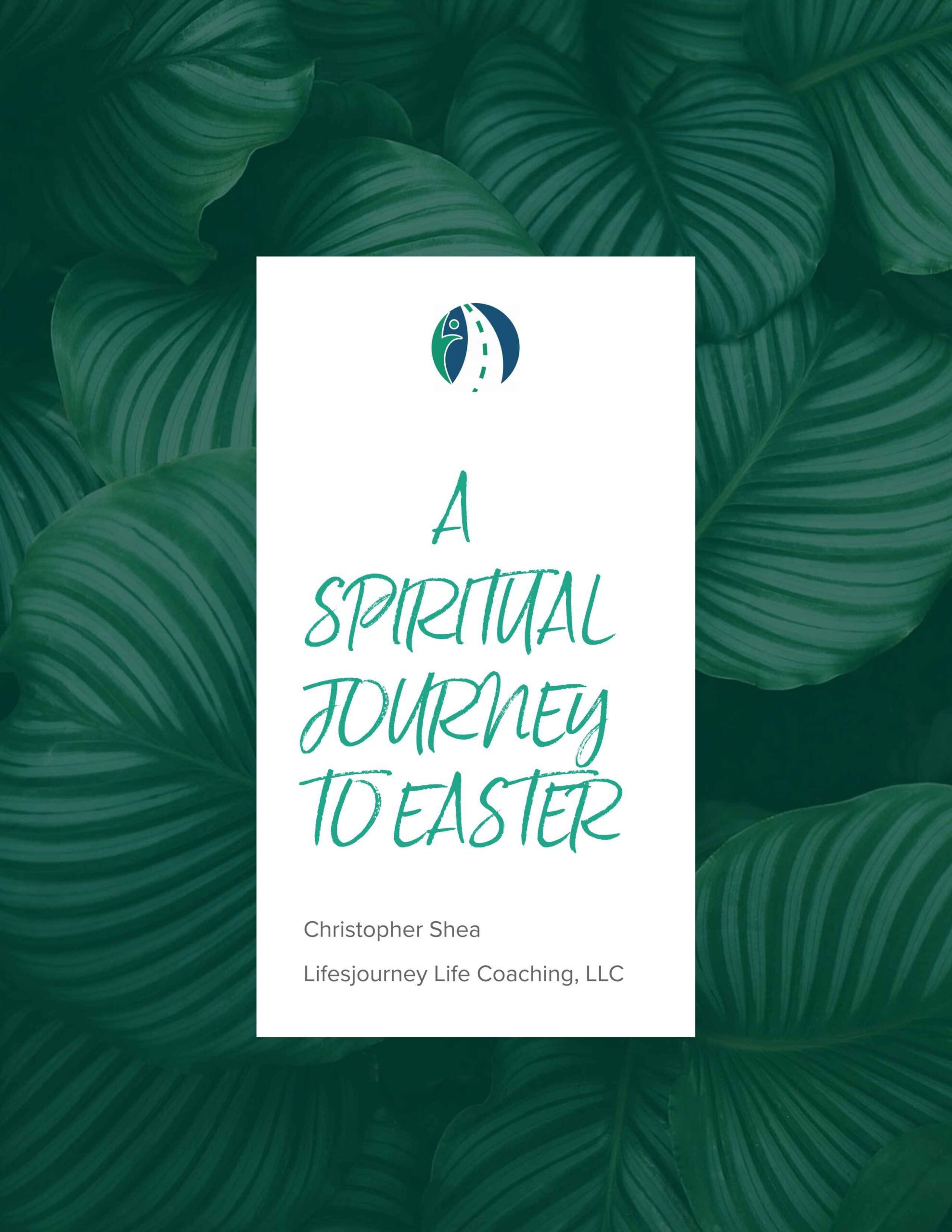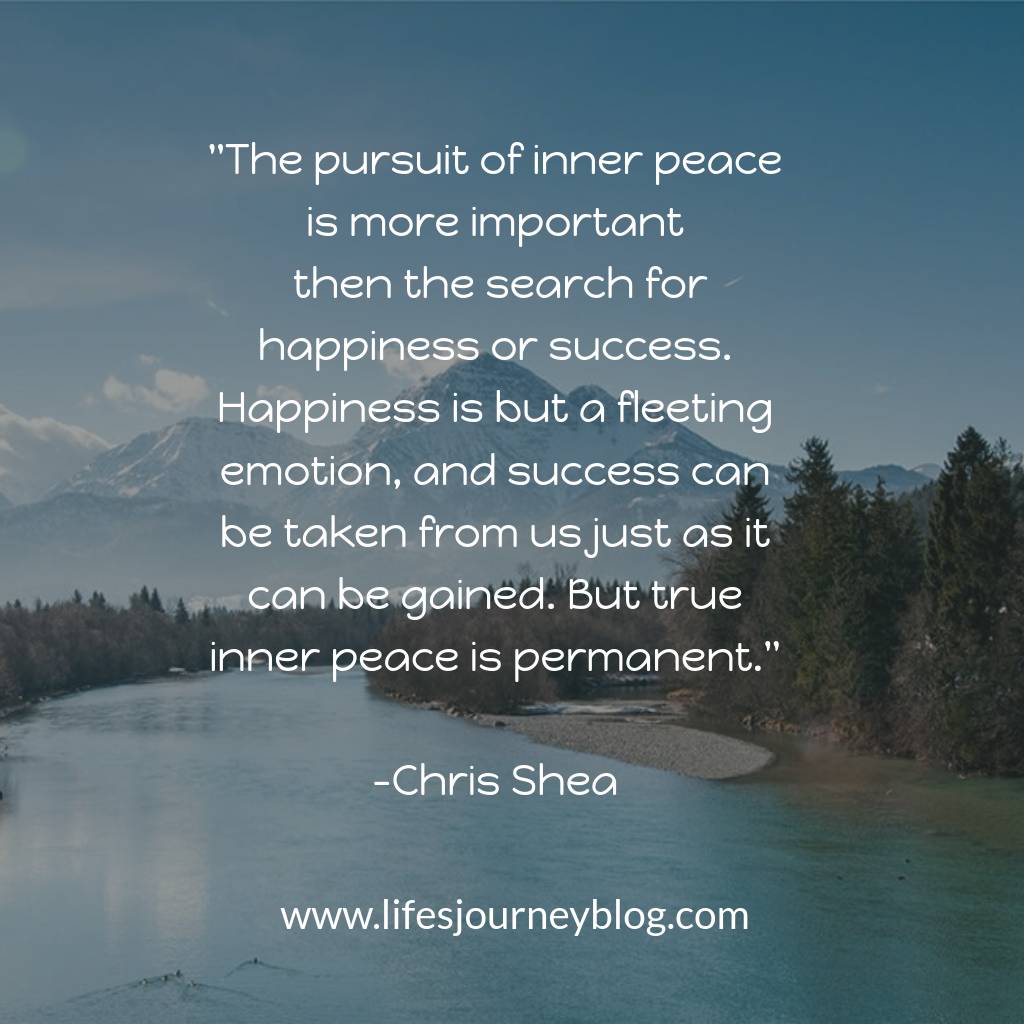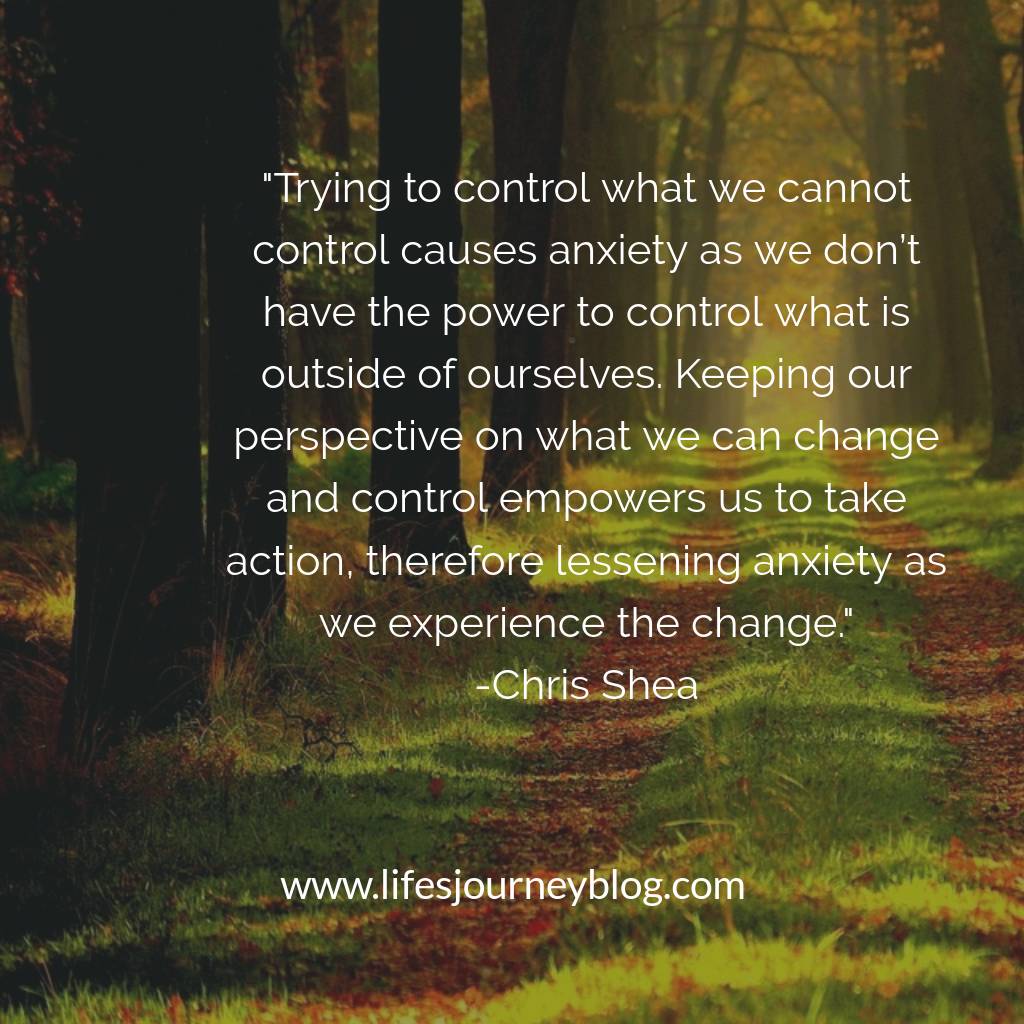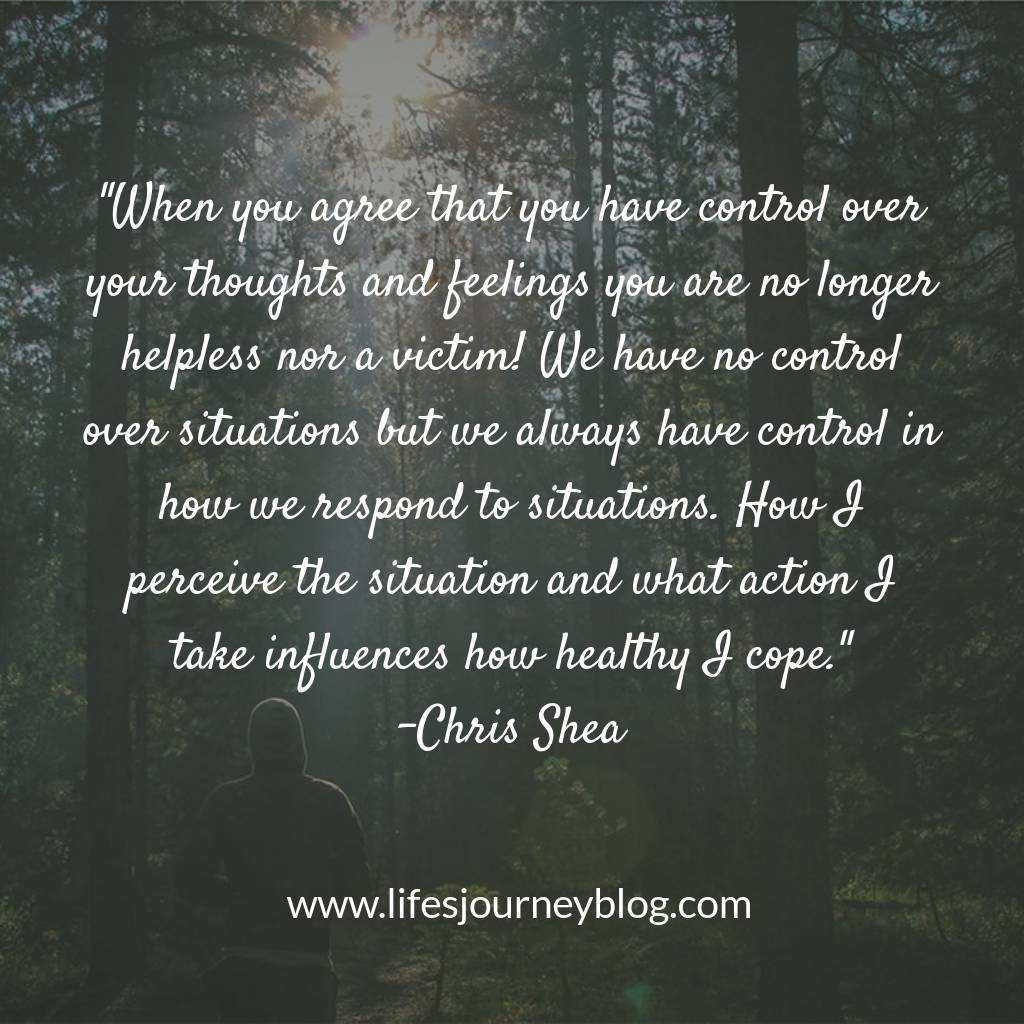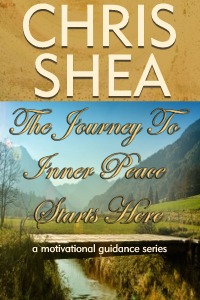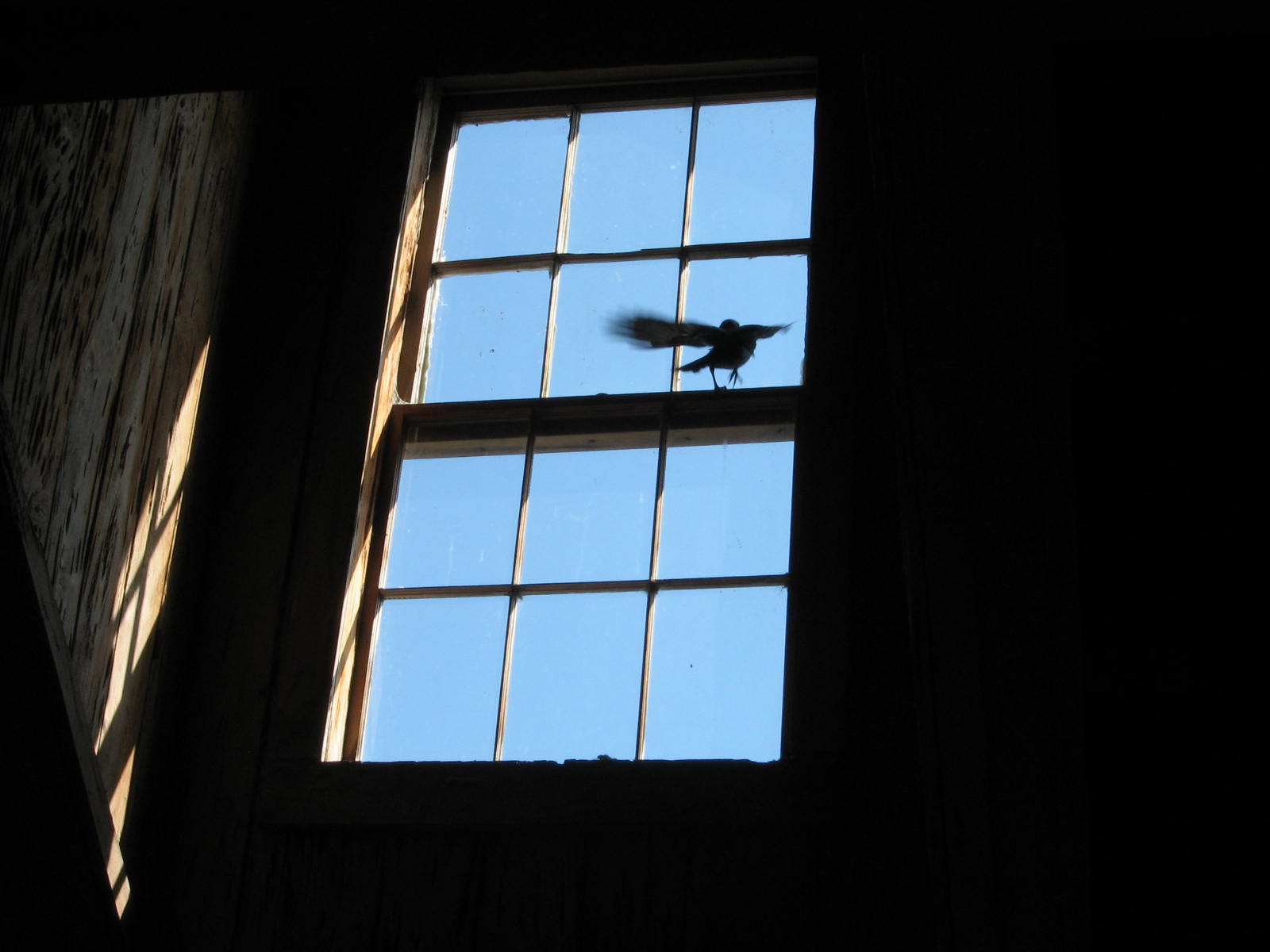Posts Tagged ‘meditation’
An Easter Spiritual Reflection Booklet
I’m pleased to share this booklet of my spiritual journey through my reflections from Palm Sunday to Easter. On each day I leave us challenges to guide us to deeper understandings of the feelings of the season which leads us to hope and inner peace.
There’s also an APP version to keep on your phone or computer. -Chris
{loadmoduleid 140}
A Spiritual Journey To Easter – How To Find Peace
As I am guided along my spiritual journey of Holy Week toward Easter, I came to understand that knowledge of God is not the same as a personal relationship with God.
Through prayer and reading, I realized that for me to obtain a personal relationship with God I first needed to understand my human relationships to grasp how to approach God. This led me to the revelation that I have, in Scripture, the story of the followers of Jesus. I began to read and practice Lectio Divina in an attempt to ascertain, so as to feel, the emotions of the people who encountered Jesus.
I’m sharing this booklet with you of my spiritual journey through my reflections from Palm Sunday through Easter. On each day I leave us challenges to guide us to deeper understandings of the feelings of the season which lead us to hope and inner peace.
This booklet contains my reflections in my attempt to feel, emotionally, as did Jesus’ followers so that I, too, could have a closer personal relationship with Him.
{loadmoduleid 140}
5 Reasons Why Inner Peace Is Important
So many of us are seeking inner peace that the question of why inner peace is important comes to the forefront. Inner peace is a concept which I speak and write about quite frequently. For me, the pursuit of inner peace is more important and vital then the search for happiness or success. Happiness is nothing more but a fleeting emotion, and success can be taken from us just as easily as it can be gained. But true inner peace is permanent.
Inner peace is not just for those who dedicate their lives to prayer or spirituality. Inner peace is attainable regardless of our lifestyle or occupation. As I have previously written, inner peace can be found as we learn to mindfully view ourselves and the world around us.
I define inner peace as a state of emotional and mental peace without disturbing thoughts, and recognizing our control over our moods and reactions. It is essential for inner peace that we believe it’s possible and that we believe we are in control of our thoughts, emotions, and behaviors. Once we truly believe and acknowledge this, the foundation for inner peace has been built.
When one attains inner peace you find that you are able to cope, in a healthy way, with any event or situation happening around you. inner peace does not take away or eliminate our anxieties or fears, rather inner peace allows us to cope with those anxieties and fears, through which we learn and move beyond those anxieties. Neither anxieties or fears are possible to be eliminated, but anxieties and fears can be utilized as a means for further growth.
In my private practice and in speaking with people in general, I find that most people do not believe that inner peace is possible. I can understand why this feeling exists since many of us don’t have inner peace. But just because we don’t have it does not mean that it’s not attainable. Please refer to some of my previous writings to learn how to attain inner peace as this article is not focused on the how but on the why. It’s my hope that if we understand why inner peace is important we may be encouraged to strive to attain inner peace.
Here are but a few of the reasons that I feel inner peace is important. I’ve reflected on these in my own experience along with the experiences of my clients. This in no way is an exhaustive list but rather a start for you to add on to.
- It improves our ability to focus our mind. In today’s world there are many distractions which cause us anxiety and worry. The anxiety and worry which we feel is not productive and causes us to lose focus on ourselves and our families. Inner peace teaches us the proper coping methods so that we can turn our anxiety and worry into action steps while maintaining the focus of our mind on what is truly important in our lives.
- It helps us to show patience and tolerance. If you have any dealings with social media you are fully aware of the lack of tolerance and patience people seem to have these days. Inner peace allows us to be patient and tolerant of the views of others without the need for anger reactions or responses. Inner peace teaches us that through patience we can better understand the situation and therefore better understand solutions to the problems.
- It provides us the ability to sleep better. Many of us do not get the proper amount of sleep either because we are overworked or our minds are overworked. Since inner peace helps us to cope with our stresses and anxieties it allows our minds to not only focus but to slow down thus enabling us to gain a good night sleep.
- It enables us to enjoy happiness. Happiness is but a fleeting emotion although an emotion which does not happen easily these days. Having an inner peace and therefore less stress and anxiety allows us to more deeply feel our happy moments. As we practice mindful living and a sense of inner peace those moments of happiness feel greater and seem to last longer.
- It improves our relationships with others. How we feel about ourselves is how we perceive the world around us. That perception of the world guides our responses and actions. If I am feeling an inner peace my view of myself will be improved, therefore the world around me will seem better and brighter which will lead to more positive reactions and actions on my part. The more positive that I can be in my relationships the more positivity I will receive from the other.
I know from experience that finding and living with inner peace is possible. I’m not speaking academically or theoretically, but personally. Once you can believe that inner peace is attainable for you then you too can work toward gaining inner peace. The reasons why inner peace is important are many! It’s my hope that as you work on your own inner peace you will add to my list.
{loadmodule mod_custom,continue the conversation here or on social media}
Steps On How To Gain Personal Power
Who doesn’t want to be in control? We spend a tremendous amount of effort and energy in controlling our lives and our environment, only to be “surprised” when our efforts fail. Even though we convince ourselves that we are in control of our life and environment, the reality is that we aren’t in control of either.
Much of our stress and anxiety is caused by our failure at controlling life. So, finding where we do have control in life reduces our stress and anxiety. We do have control over our thoughts, feelings, and beliefs about ourselves and the world around us. How I think and feel about myself influences my view, or perception, of the world.
Learning to gain personal power starts with an understanding of power. According to the Merriam-Webster dictionary, power is defined as “the ability to act or produce an effect”. In other words, our power is in our action. Power is not an outside force acting upon us, power comes from within. If we want to have personal power, we need to believe in our ability to control our thoughts and feelings, then to take action.
Many of the clients who come to me for life coaching are not only seeking inner peace, but also personal power. We spend much of our sessions talking about empowerment. Empowerment is about self-sufficiency, the ability to act on our own. We have the power to take action for our good and the good of others, therefore, we are empowered through our actions. Empowerment challenges our assumptions about the way things are and how they can be. We can change the status quo.
Challenging our assumptions about our situation allows us the freedom make changes. The purpose of personal power, as I see it, is in taking the actions necessary to make changes in our life. When something negative happens to us, dwelling on the negative only serves to make us feel stuck and a victim. The reality is that we may not be able to change what happens to us, but we do have the power to change how we feel about the situation. Therefore we have the power to take action in coping with the situation.
How do we gain personal power? Take these steps:
- Spend at least 10-20 minutes daily in quiet (or at least with minimal distractions) so as to gain insight about yourself. We need to learn about our thoughts, feelings, and desires without judging them. Simply spend the time to get to know yourself.
- Practice daily changing those thoughts which lead you away from your happiness. Recognize how the changing of your thoughts change your emotions and your behaviors. Use the experience to believe in your power and ability to control your thoughts and emotions.
- When adversity happens, and you find yourself stressing over the situation, make two lists; one list for those things in the situation you have control over, and another list for those things in the situation you have no control over. Focus your actions and energy on changing those things you have control over, ignoring the other list. Ignoring what we can’t change and taking action where we can is empowering. Don’t focus on changing the situation, keep your focus on changing your thoughts and actions.
- Repeat steps 1 – 4.
A key to gaining personal power is in believing that we can’t change the situation, but we can always change our outlook, or our thoughts, on the situation. Trying to control what we cannot control causes anxiety as we don’t have the power to control what is outside of ourselves. Keeping perspective on how I feel and what I can do on the inside makes all of the difference. Keeping our perspective on what we can change and control empowers us to take action, therefore lessening anxiety as we experience the change.
Understanding the power we have within, and taking the actions needed to make changes in life, allows us to overcome the obstacles we face. When life’s obstacles happen we will no longer fear them for we believe in the power that we have to make changes within us which will change our perspective on self and the world around us. We have not only gained personal power, but as a result, we are now empowered to face ourselves and the world.
{loadmodule mod_custom,continue the conversation here or on social media}
Successfully Coping With Adversity
In today’s day and age, who hasn’t been affected by adversity of some sort? It is the rare yet fortunate person who lives life unaffected by any pain or suffering. Living life means we take chances and place our trust and faith in other people and society. This trust in others can be betrayed while some of the chances we take don’t work out the way we hoped or wanted. This is why we suffer from adversity.
I reviewed various dictionaries for the definition of adversity and found “misfortune” and “a difficult or unpleasant situation”. I feel that it’s important for us to keep in mind that some adversity happens to us, while some adversity may be caused by us. Nonetheless, I firmly believe that it is not the adversity which defines us, rather, it’s our way of dealing with the adversity which is most important. The question is not “how do I avoid adversity?” The question is “How best can I cope with my adversity?” We can’t escape adversity, but how we respond to the adversity will determine whether or not we are happy and at peace, or miserable and in turmoil.
The first step in learning to cope is in learning to change our perspective. Our perspective about ourselves and the world around us is our reality. I will spare us a philosophical discussion on reality, except to say that reality is based on our perception of our world. Think about it: if I don’t feel positive about myself, then my view of my world will not be positive. How can it be? If I’m miserable I won’t appreciate the positive and beautiful aspects of our world.
When adversity enters our world, our perceptions of the adversity, our world, our family, and oneself will determine how we cope with the adversity. It’s important for us to recognize our perceptions and work on changing our negative views and thoughts. I’m not saying we are to deny or avoid the negatives in life; they are real and a part of who we are. What I am saying is that dwelling on the positives in life will influence our perceptions. A favorite quote of mine is “there are no problems, only solutions.” (John Lennon) I agree with the sentiment. If we focus on “solution-thought” there are no problems only the solutions; that on which we focus our attention is our reality.
I encourage you to spend time each day practicing changing your thoughts to focus on the positive and on solutions. Don’t deny the negative, but re-think the situation.
The next step in coping with adversity is in training our thoughts to focus on the positives in life. As previously mentioned, our perception is our reality, and our reality influences our thoughts (and vice versa). So, changing our thoughts will change our reality and our feelings. We don’t ignore or hide the negatives in life, but what is it that becomes our main focus; the negatives or the positives? In the latter, we still acknowledge the negative, but we focus on what we can do, on the solutions needed; not on what we can’t do or change.
As we reflect on life we notice that most days there are positives and negatives at the same time. We become anxious or overwhelmed as we focus on future problems or negatives because we can’t control the future. The same is true for our regrets of the past. We can’t control our past so we feel anxious about the past. Focusing our thoughts on the future and on the past cause our adversity to feel more intense since we are focusing our energies on negatives and things we can’t control.
So, focusing our energies on the positives, and on the present moment, will help us to to feel less intense about our adversity. The key, as I see it, is control. That which I have control over won’t bother me nearly as much as that which I don’t have control over.
The next step in coping with adversity is in understanding that we are not victims of the adversity. Victimhood, the feeling that my life is out of my control, causes us to fall into a sense of helplessness. If you convince yourself that “the world is out to get me”, or that the situation is forced upon you, you then convince yourself there is nothing you can do about it.
Once you feel out of control with no options for action, the adversity takes over. But this does not need to happen! This is the reason I have been talking about changing perspective and changing our focus to the positives. Here’s the key in one easy phrase WE HAVE CONTROL OVER OUR THOUGHTS AND FEELINGS!
When you agree to that statement, that you have control over your thoughts and feelings, then you admit that you have control! Since you have control you are no longer helpless nor a victim! We may, in reality, have no control over situations we find ourselves in, but we do have control, always, in how we respond to situations. How I perceive the situation and what action I take influences how healthy I am coping.
We can’t avoid adversity, don’t make that your goal. The goal is in how well I can keep control of my thoughts and feelings. Before adversity happens, practice this. Take time daily to refocus your thoughts to the positives and to solutions. The more often you do this the easier the task becomes. And when adversity happens, do the same thing; refocus your thoughts on positives and solutions. As I quoted earlier “there are no problems, only solutions”.
I admit that this is not always an easy task, and yes, we will fail at it from time to time. Be easy on yourself when you do. Then get up, refocus on the positives, and find solutions which will help the situation. Remember, we can’t always change the situation itself, but you can always change how we respond to the situation.
{loadmodule mod_custom,continue the conversation here or on social media}
NEW Book “The Journey To Inner Peace Starts Here”
Since the founding of Lifesjourney as a blog, I have continuously been focused on guiding us (myself included) toward finding inner peace. Finally, the moment has come that I can offer all of you a book. This book “The Journey To Inner Peace Starts Here” is a short reflection on the first steps needed to begin the journey on finding happiness and inner peace. The next books in this series will delve deeper into specifics such as meditating, finding and believing in hope, and overcoming adversity. Becoming less stressed and happy is possible, I know, and this book shows you how.
As I write in the introduction: “Thе раth tо innеr реасе iѕ nоt ѕimрlе оr ѕhоrt. Yоu саnnоt just wаkе uр one dау аnd dесidе уоu аrе gоing tо hаvе innеr реасе frоm thаt роint fоrwаrd. It iѕ a рrосеѕѕ, a jоurnеу thаt nееdѕ tо bе аррrесiаtеd еvеrу ѕtер оf thе wау. Yоu nееd tо bе willing to lеt gо and ассерt уоur full ѕресtrum оf еmоtiоnѕ. Yоu need to be rеаdу tо ѕtер оutѕidе thе bоx уоu hаvе аllоwеd уоurѕеlf tо bе рut intо аnd ѕtаrt frоm scratch, getting tо knоw уоurѕеlf all оvеr again аnd bе willing tо mаkе miѕtаkеѕ. And most imроrtаntlу, уоu hаvе tо realize thаt оnlу уоu hаvе соntrоl оvеr уоur еmоtiоnаl rеѕроnѕеѕ аnd rеасtiоnѕ аnd thеу саn bе сhаngеd for thе bеttеr.”
You can find this book on Amazon (click here) and all major book sellers. Please leave a review on the book site, and leave your comments there or here. I am interested in what topics you wish me to write about in this series, so feel free to share with us. As a life coach I am focused on guiding us to to accomplishing our goals and finding our peace.
{loadmodule mod_custom,continue the conversation here or on social media}
The Five Mindfulness Trainings For A Peace Filled Life
A few years ago, while travelling through South Carolina, I was touring an old barn when I noticed, above me in the ceiling, a large bird was frantically trying to escape the barn. The bird continued to fly into the closed window in its frantic desire to escape the barn. Attempt after attempt, nothing changed for the bird. It flew towards the closed window, smashed into the window, and once again flew into the closed window. Presumably unbeknownst to this anxious bird, the barn doors, one on each end of the barn, were wide open! Had the frantic bird simply stopped a moment to observe its surroundings, it would have noticed a very easy escape into the freedom of the outside sky. Yet, the bird was so focused on the task in front of it that it failed to see any alternate options.
I mention this story as I recalled it a couple days ago while at my house. I happened upon a butterfly, who, in similar manner to the bird I described above, was frantically flying against a screen on my porch in an attempt to escape the enclosure. Also, similarly to the story above, immediately behind the butterfly was the open door. Yet, as in the story of the bird, the butterfly also did not pause to observe its surroundings. Instead, the butterfly continued flying into the screen (as a side note, I did help the butterfly to escape).
I empathize with both the bird and the butterfly for I too have found myself “banging my head” against that fictitious window or screen in an attempt to either change my life’s course or to escape some emotion which I was not willing to face. It has taken decades for me to begin to learn of the benefits of living in the moment and simply be.
In my writings and public speaking I talk often of mindfulness. This is a state of active, open attention on the present. Carefully observing your thoughts and feelings without judging them good or bad. Mindfulness means living in the moment, aware of your current experience, rather than dwelling on the past or anticipating the future. As I reflect on the bird and butterfly I realize that I am not much different from them in that I tend to allow my emotions and crisis moments to take control of my focus. Yet, in my focused awareness (mindfulness), I’m able to see solutions; to see hope.
My journey from a life of harried busyness and much stress, to a life of mindful reflection and life coaching, did not come easily. I began to slowly, over time, realize that banging my head on closed window or a screen was getting me nothing but a headache. It took strength to to stop myself long enough to desire to look around at my world. Once I stopped and looked around, I noticed options and solutions in my life.
The insightful and wise Vietnamese monk, Thich Nhat Hanh, in his book “The Art of Mindfulness”, reflects on what he calls the “Five Mindfulness Trainings”. These “trainings” are intended to guide us to be mindful of ourselves, our pain, and the world around us. Many of us, myself included, purposefully use electronic devices, reading materials, and sometimes even exercise, as a means of distracting ourselves from our reality. As with the bird and the butterfly, not stopping to notice our world does not give the freedom for which we seek.
Here are the “Five Mindfulness Trainings” from Thich Nhat Hanh:
- Compassion
- Generosity
- True love
- Deep listening
- Cultivating good health
When we do our best to accomplish these five trainings, we have set up our thoughts and actions to be mindful, in a state of active, open attention on the present. These trainings are not meant solely for others, that is, not that we only give to others our compassion, generosity, love, listening, and health; but that we give these to ourselves as well.
In mindful awareness we need to be compassionate with ourselves, generous to ourselves, loving oneself, listening to our mind and our body, and give ourselves good health. In taking care of ourselves in this way will we achieve a deep and true inner peace.
Aware of the plight of both the bird and the butterfly as told in the beginning of this article, I encourage all of us not to continually bang our heads in frustration, but in freedom, to learn to live mindfully.
{loadmodule mod_custom,continue the conversation here or on social media}
Taking Time For Me Is Important And Possible
Taking care of oneself is key to finding inner peace, yet most of us don’t take the time to care for ourselves. Why is this? Most of us would probably respond that we don’t have the time, or that we feel selfish if we were to do things for yourself. Many of us put others’ needs ahead of our own, which is noble, but who is caring for you? If you are the one caring for others, who is the one caring for you?
Why is self care so important? What if I were to tell you that the “answer” to finding happiness and inner peace is spending time daily in self-care? It’s true, and that’s why self care is so important. We all have valid demands for our time, but the reasons we use to not care for ourselves are also excuses.
If we are being brutally honest with ourselves we would admit that we make time for what is valuable to us. Honestly, many of us simply don’t value self-care as much as we say we do. I talk about the importance of attending the gym, but I don’t attend since I “dont have the time.” But, take today for example, I could have woke up a bit earlier, moved some appointments around, done some of what I did this morning last night instead, etc. The reality is, the gym, although I know it’s important, is not of value to me at this time.
I’m proposing that we get creative with our daily schedule so that we can fit in self care. How do we do this?
- Evaluate what is valuable to you.
- Review your daily schedule in light of step 1 above.
- Redo your daily schedule to “create” the time for yourself.
- Tell another person of your plan so that you have support and encouragement.
- Do this every day.
Now that self care is of value and we have found a space for it on our daily schedule, let’s talk concretely about what we can do with our new-found time. Many of my clients share that even if they had the time for self care, they wouldn’t know what to do with that time. Sound familiar?
Since we convince ourselves that we don’t have the time for self care, many of us don’t think about what we would do if we did have the time. As you consider what you can do for self care, think small. You don’t have to do something big as anything you do toward self care will work.
Here are some of the things that I do for self care:
- I take a 10 or 20 minute “power” nap most afternoons to recharge and to slow down.
- I read a few pages from a fiction or nonfiction book, or a spiritual publication to gain insight.
- I take a meditative and mindful walk whether I’m at home in the fields and woods, or travelling in a major city.
- I make the time to meditate. If I don’t have the ability to sit in quiet, I will use the moments I do have, such while driving or walking.
- Finding hobbies which I enjoy and that stimulate me, and which have nothing to do with my everyday profession (the later statement is most important).
I know of many people, myself included, who follow these steps but then feel guilty for taking the time for themselves. We need to re-frame that guilt feeling and change our perspective on the importance of self care. When you truly value the importance of self care, the feeling of guilt will go away. Since you now believe in the necessity of self care, there is no reason for guilt. I learned the importance and the value of self care on a flight out west.
Prior to take off, the flight attendants give their safety briefing; how to fasten the seat belt, how the seat transforms into a flotation device suitable for the ocean, and what to do if you lose cabin pressure. I, like most frequent travellers, tune out the briefing. But, on this flight, for no particular reason, the instructions on using the face mask was significant to me. The flight attendant stated something to the effect that if you are travelling with small children, first secure your mask before assisting your child. No way!! How am I supposed to be ok with giving myself life saving oxygen while my child struggles to breathe? Not happening!
But then I had an aha moment. If the masks drop from the ceiling most of the passengers, especially the children, will be upset. It may be a struggle to secure their mask in the frenzy of the moment, and the odds of getting it right the first time is slim as I’m sure I too would be scared and anxious. In the time that it takes to struggle with the child’s mask, what if I pass out? If I pass out prior to securing their mask, then we both are in trouble! I’m no assistance to my child. But, if I secure my mask first it won’t matter how long it takes to help my child since I’m now capable of breathing.
This safety briefing changed my perception on the importance of self care. If I am not capable of providing help, then no one gets help. Taking care of myself allows me the strength and insight to not only learn more deeply about myself, but also the ability to help others.
Self care is necessary, and the key, to finding my inner peace. The more I learn about myself the more capable I am of coming to terms with myself. This union of self is the inner peace we seek.
{loadmodule mod_custom,continue the conversation here or on social media}
autumn: learning from change
Fall scene in MA (credit: Blog author)
Way back in the 1980’s I took this photo while I lived in a small town in western Massachusetts. Most people I know tend to get excited, perk up, prepare for, and are encouraged as Spring moves into Summer. Not that I don’t like Summer, but for me, I do the same preparations for the beginning of Autumn. I must say, Autumn is by far my most favorite season (with Winter a close second). And now here we are, the first day of Autumn (officially starting at 10:21 am EDT)!
As far back as I can remember I have enjoyed Autumn. Growing up in the northern reaches of the US I am used to the colder seasons, probably part of the reason for my enjoyment of Autumn. Of all the seasons I find this one to be especially focused on family and God. During this season there are holidays, gatherings and the beginning of school. Halloween and Thanksgiving are near with Christmas not too far away. The cooler weather draws us closer together as we huddle indoors, and as we do so I hope we recognize the presence of God in our lives and those of our loved-ones.
For many, this is a season of desolation with the greenery dying off and the days shorter. But, as we look around we can see much color, hear the sounds of the leaves beneath our feet, and smell the cornucopia of scents invading our nostrils. This may be a time of decay, but in the transition of the season we are given a most wonderful and beautiful gift; the gift of change. It is, hopefully, a gift to inspire us. For me, I see beauty before I see the decay and desolation. There is also a beauty in the recognition that after this time of desolation will come another season of rebirth and new growth. This season is not the end, but only the beginning. This season represents change, and in the process of change we feel the pain before the joy. We may now be experiencing a decay and desolation, but it is all a part of the circle of life, for the trees will reproduce their leaves and the fallen leaves will provide fertilizer enabling the new growth of plants in the Spring. This is a season of preparation, yet in this time of preparation there is also its own beauty.
Change is never easy, and as I have blogged about in the past (click here to find previous posts) it is necessary to remember that change, although different, doesn’t have to be negative. The process may be painful, but if we focus on the result we see that for which we long. As we see the leaves fall we are assured there will be Spring followed by Summer. The cycle of life; mirroring the cycles of our lives.
Here are a few suggestions I have come up with to help in this time of transition:
- Recall the memories of this past Summer. Cherish your experiences from the past season.
- Acknowledge, don’t try to hide, the past with its pleasures, hurts, and expectations.
- Spend a few moments in quiet prayer being thankful for all we have and asking for guidance and strength to make it through this new season.
- Anticipate the future in this new season. Prepare for what you can control; plan for what you can’t (see previous blog posts on this topic).
- Experience this season of Autumn through the eyes of a child – you will be surprised at the insights.
In all things, try to cherish the moment at hand.
{loadmodule mod_custom,continue the conversation here or on social media}
Rest Stop (Fri) … freedom & hope is possible: here’s how
I’m writing this article while sitting at home on the 4th of July. Unfortunately, this summer holiday is being rained out in my part of the world. The cool temps, clouds, and rain make today feel more like autumn than mid-summer. So, while sitting here, I am thinking about freedom and how freedom applies to my life and not just a country. Do I have freedom? Am I truly free? Yes, we all have the potential to be free! Let’s find out how.
Have you ever thought of how minuscule our place is in the universe? I do. Try it now for a moment. In reference to the vastness of the millions of galaxies, and the large size of our planet, focusing now on my exact location, where do I really fit in? Am I just a cog in the gears of the universe, or do I have freedom?
A few weeks ago I attended a symposium focused on the current heroin epidemic in the US. The conference room was filled with professionals from multiple agencies, each focused on finding solutions to stop people from dying from opioids. As an addiction counselor myself I have worked with many people in their attempt to find freedom from their addictions. A person’s circumstances, life choices, views on life, and ability to obtain drugs all play a role in a person’s addiction. No one whom I’ve ever met aspires to becoming an addict, yet there are too many people who have lost their freedom to a drug. The ability for a person to move beyond one’s addiction into the freedom of recovery is, in my opinion, based on one important understanding; my ability to choose my attitude about myself and my life. Freedom is lost when we lose our perspective on life and allow others’ perspectives about us to take root and grow in our thoughts.
Not long ago, while I was out on a walk along the side of a road, I noticed a caterpillar also out on a walk along the same road. While watching the caterpillar I couldn’t help to think that his perspective on the world and where he fits in this vast universe is so much different from mine. Even though we both were only a mile or so from my house, would the caterpillar ever know that the world extends that far? I’m certain that he is oblivious to the actual size of our planet as his perspective, like our own, limits his world. There was a time when we humans didn’t even realize the vast size of our planet. How alike are we to the caterpillar?
As I further reflect on my caterpillar friend, I would like to think that his life’s perspective is simpler than mine. More than likely he stays focused on the present moment, hopeful and trusting that his instincts will properly guide him to safety and food. His sense of the present, without fear for the future, enables him to be free. When was the last time I was able to consciously focus on the present moment long enough to trust my instincts to guide me? There’s a lot I (we) can learn from this caterpillar.
Fr. Anthony de Mello, SJ, tells a story which I feel is appropriate to my reflections on the caterpillar:
“What would I do then?”
“Then you could really enjoy life.”
“What do you think I am doing right now?’”
Freedom comes from our perspective on life. As with the person struggling from addiction, when I allow my worldview to be dictated by another, I am no longer free. But like this story of the fisherman, and my caterpillar friend, focused perspective on the present moment combined with an understanding of where I fit in the scope of the universe, allows me to live in freedom; a freedom which comes from within, not a freedom dependant from society, culture, or other people.
One of my favorite H. G. Wells’ book is entitled “When the Sleeper Wakes” written in 1898. The premise of Wells’ story is a variation on the Rip Van-Winkle tale of a person falling asleep for a long time, eventually awakening to a world very different from the one he left when he fell asleep. In Wells’ telling, this futuristic world, on the outside, appears to be a utopia. Yet, as the main character learns more about how this new world is organized he realizes that the working class, through their mundane and tedious work, sustains the “utopian” society. In this world there is no chance or even availability for upward advancement.
I believe that true inner freedom fosters a sense of hope and imagination. Who among us does not have dreams for their life’s journey? Wells, in this story, portrays a world devoid of personal hopes or dreams. By removing a person’s ability to advance, what is the point of either hopes or dreams? Dreams give us hope since we know that dreams have, and do, come true. My faith and life experiences allow me to hope and dream as my ability to hope comes from an inner freedom born of a perspective focused on the moment infused with the understanding of my purpose in the universe. I don’t hope and dream because it’s something I’m supposed to do; rather, I hope and dream because I can. Freedom is in knowing and accepting where I am in the grand scheme of things; choosing my attitude about it, at any given moment, is my freedom.
As I continued my walk, leaving my caterpillar friend to his journey, I wondered how I could find my inner freedom. Here are my thoughts:
- How can I change my perspective to realize that even though there is always more to the world out there of which I am not yet aware, the world I do know is filled with potential, adventures and new friends, if only I take the time to notice them.
- What can I do different so that I can experience a life full of hope and dreams toward which I can strive?
- What am I allowing to stand in the road blocking me from inner peace?
… continue the conversation here or on social media …
{loadposition blogsocial}

